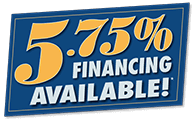If you’re serious about developing good home owner habits, you need to read this!
Your very own home, it’s finally yours! You can knock down walls and paint them whatever color you like and there’s no landlord to worry about.
Now comes the time when you need to get serious about developing good home owner habits, because it’s easier to do now than suffer those head-slapping regrets later down the road.
Here are some tips to turn you into the best home owner that your future self will thank you for:
Security & Safety
- Hide an extra key in a lockbox. Thieves look under flower pots and rocks.
- Reset the key codes for garage doors, gates, etc.
- Test fire and carbon monoxide detectors.
- Check the temperature on your water heater, especially if you have young ones, so it won’t accidentally scald. Manufacturers tend to set them high. (but the best temperature setting for hot water is 120 degrees).
- Make sure motion lights and other security lights have working bulbs.
- Put a fire extinguisher in the kitchen and each additional floor.
Maintenance Planning
- Start your master maintenance plan (and good home-keeping habits) by setting reminders in your calendar to do these basic maintenance tasks:
- Clean out the dryer hose and vent yearly. Clogged ones burn down houses.
- Change your HVAC filters at least once a season. You’ll save on heating and cooling — and your unit will last longer. (While you’re at it, go ahead and stock up on them, too.)
- Schedule HVAC maintenance for spring and fall.
- Clean your fridge coils at least once a year. It’ll run better and last longer. (Don’t see any coils? Lucky you! Newer fridges often have coils insulated, so there’s no need for annual cleaning.)
- Drain your water heater once a year.
- Clean your gutters at least twice a year.
Emergency Preparedness
- You really, really, don’t want to be figuring any of this out in a real emergency. Do it now. You’ll sleep better and be less likely to ruin your home.
- Locate the main water shut-off valve. Because busted pipes happen to almost every homeowner at least once. And water damage is value-busting and pricey to fix.
- Find the circuit box, and label all circuit breakers.
- Find the gas shut-off valve, too, if you have gas.
- List emergency contacts. You already know 911. These are the other numbers you often need in an emergency. You should have them posted where they’re easy to see. In fact, here are a few:
- Your insurance agent
- Plumber
- Electrician
- Assemble an emergency supply kit. Some key items are:
- Flashlights and batteries
- Non-perishable food and water
- Blankets and warm clothing
- A radio, TV, or cell phone with backup batteries
Home & Mortgage Documents
In case there’s a dispute with your mortgage lender or a neighbor over property lines, or if you’re a bit forgetful about due dates.
- Store copies (the originals should be in a fireproof safe or safety deposit box) of important home documents so they’re readily available. Go paper, cloud, or better, yet, both.
- Lender contact information
- Property survey
- Inspection report
- Final closing documents
- Insurance documents
- Set mortgage and other bills to auto-pay so you’re never late.


